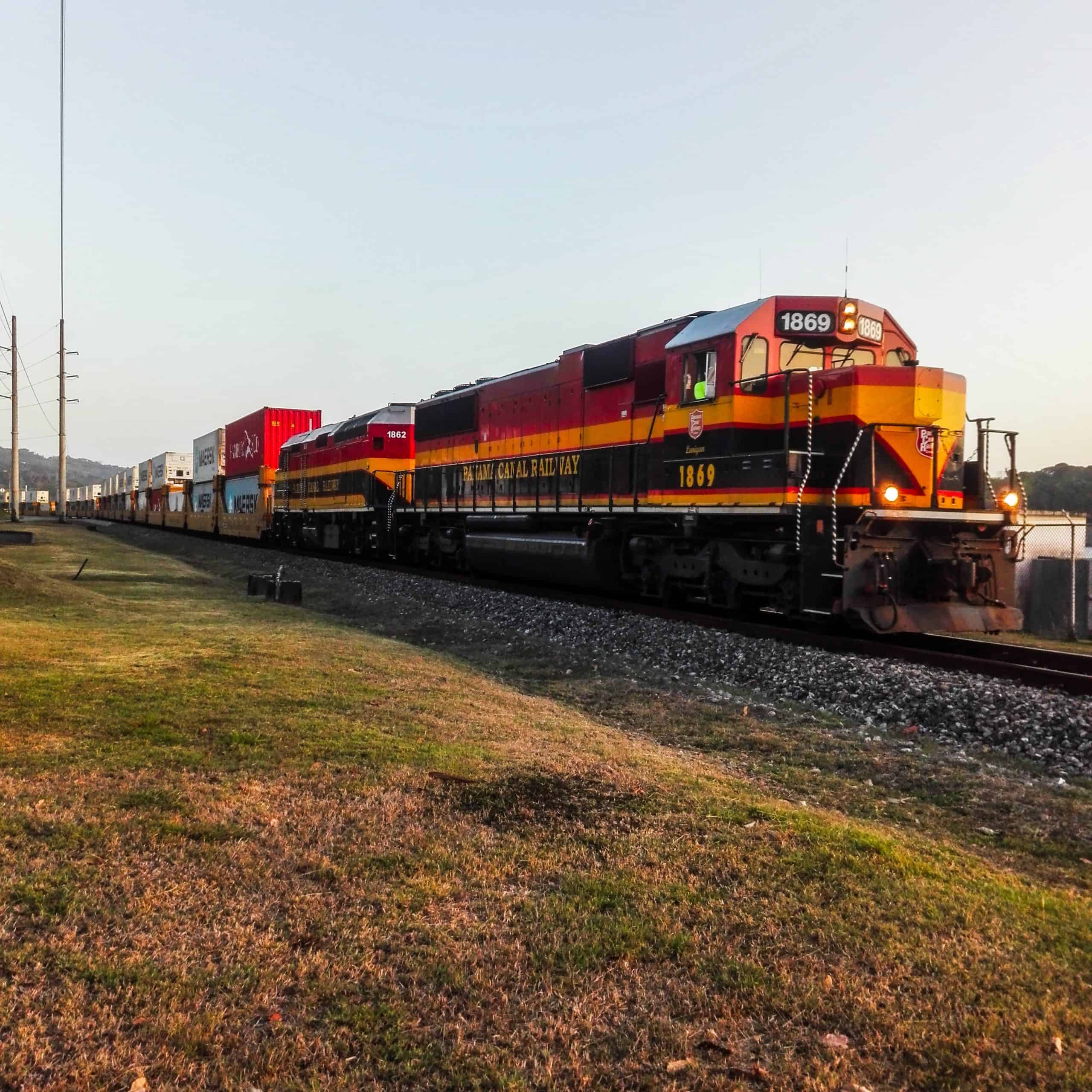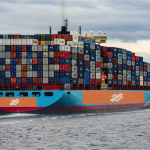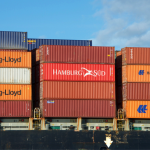Devin Burke Gets Inside Scoop from Port of L.A.

Let’s talk rail and what’s happening with getting shipping containers out of the Port of Los Angeles, so your goods can get to your businesses around the U.S. Universal Cargo’s CEO Devin Burke had a conference call with the Port of L.A. yesterday (September 13th). During the meeting, he got some good intel. from the port on this topic.
First, let’s get some background.
Background
The international shipping industry is in the thick of peak season when, in preparation for the holiday shopping season, more goods are imported to the U.S., especially from China, than any time of the year. Unfortunately, with a deluge of cargo volume over the last year, Covid restrictions having limited operations, poorly placed equipment – including shipping containers – around the world, and other factors, U.S. ports were already suffering major congestion problems before the peak season even started. Add to that serious U.S. rail congestion and trucker shortages, and shippers are facing major delays in getting their goods on top of often being hit with demurrage and detention fees, all while paying record freight rates. Last month, freight rates reached prices over 500% higher year-on-year for imports from Asia to the U.S. West Coast.
We often focus on the ocean shipping aspect of the importing and exporting process in this blog. However, Universal Cargo not only handles port to port shipping for U.S. importers and exporters but door to door as well. That means rail is a major concern and challenge that our customers care about. Intermodal shipping is not getting any easier for shippers before and/or after the ocean (or air) portion of the importing or exporting process.
On top of rail congestion around the U.S., rail prices have also surged. Just one example of the rail rate hikes we’ve seen over the last year happened last month when Union Pacific Railroad made the move to “raise its surcharge on low-volume shippers out of California from $3,000 to $5,000 per container on loads that exceed contracted volume, effective Aug. 8,” as reported by Ari Ashe in a Journal of Commerce (JOC) article.
Port of L.A. Holding Containers

You’d think as congested as the Port of Los Angeles and the U.S. rails have been, that the port would be sending shipping containers out on the trains as fast as possible. Well, not exactly.
After his conference call with the Port of L.A., Burke said, “I learned that in the past few months, to help organize the chaotic situation with the rail, the port has decided to stop sending out containers bound for a specific destination (like Memphis, Chicago, Dallas, etc.) in piecemeal – or, as they call it, “partial trains” – whereby they only send 10-20 containers at a time. But, instead, they are waiting for a full train.”
Locomotive Engineer James Moe said a very typical car length for a modern train can haul 240 containers. Longer trains also exist.
Burke continued, “So when [the ports] do this, they can better measure and track where all containers are and what their accurate ETA is at destination. The downside, of course, is most containers will certainly experience delays waiting for a full train.”
Perhaps this strategy does end up being more efficient for the port than sending partial trains, but most shippers probably won’t want to hear about one more way their cargo could be held up. If, ultimately, this strategy helps ease the congestion at ports, it may be worth it to many shippers. If you’re holding your breath for that, though, you probably shouldn’t.
End in Sight for Congestion?
A question on many shippers’ minds is when will this interminable congestion at the ports end? Burke’s conversation with the Port of L.A. did not provide the most optimism on that front.
“They don’t see any break in the logjam in L.A. at least through November,” Burke shared, “with an average of 20 ships arriving every day and about the same leaving.”
Relief could start coming quickly after that. The port representatives told Burke, “There is an expectation that volume should drop off after Thanksgiving, and that could cause some catching up to happen as far as loosening the logjam both overseas and here. But no one can see any drop at this point in time.” Thus, maybe we could see things finally cleaned up a bit early in 2022. Maybe.
But then our problems could start up again not too long after that.
As previously discussed in Universal Cargo’s blog, when all this congestion is finally cleaned up, there’s another danger on the horizon. The International Longshore & Warehouse Union’s (ILWU) master contract is set to expire next year. It seems like every time this happens, negotiations for a new contract get contentious, and shippers have to pay the price with bad congestion at the ports. We’ve given 3 strategies for shippers to protect themselves from this possible disruption.
Retailers Chartering Ships Not Bypassing Carriers
I’ve been writing a bit about big shippers/retailers chartering their own ships in the face of the supply chain problems of exorbitant freight rates, difficulty getting space on voyages, and carriers not meeting BCO’s contracted volumes. While retailers bypass the spot market (though not necessarily paying less per container) and competition for ship space by chartering ships dedicated solely to their goods, they’re not really bypassing the major carriers.
Rather than chartering from independent ship owners, as I’ve assumed some of these big shippers were probably doing, the retail giants seem to be chartering from the major carriers. Carriers also often operate port terminals, bringing up the question of whether their customers who are chartering whole ships might get preferential treatment at the ports.
Burke said, from his meeting with the port, that “according to what anybody knew, they didn’t expect preferential treatment of the chartered vessels coming in by Walmart, Home Depot , etc. as far as unloading and finding chassis; however, it was suspected that depending upon the actual carrier doing the chartering (Maersk, MSC, CMA, etc.) that some customers, like Walmart, would most likely be getting some favors.”




